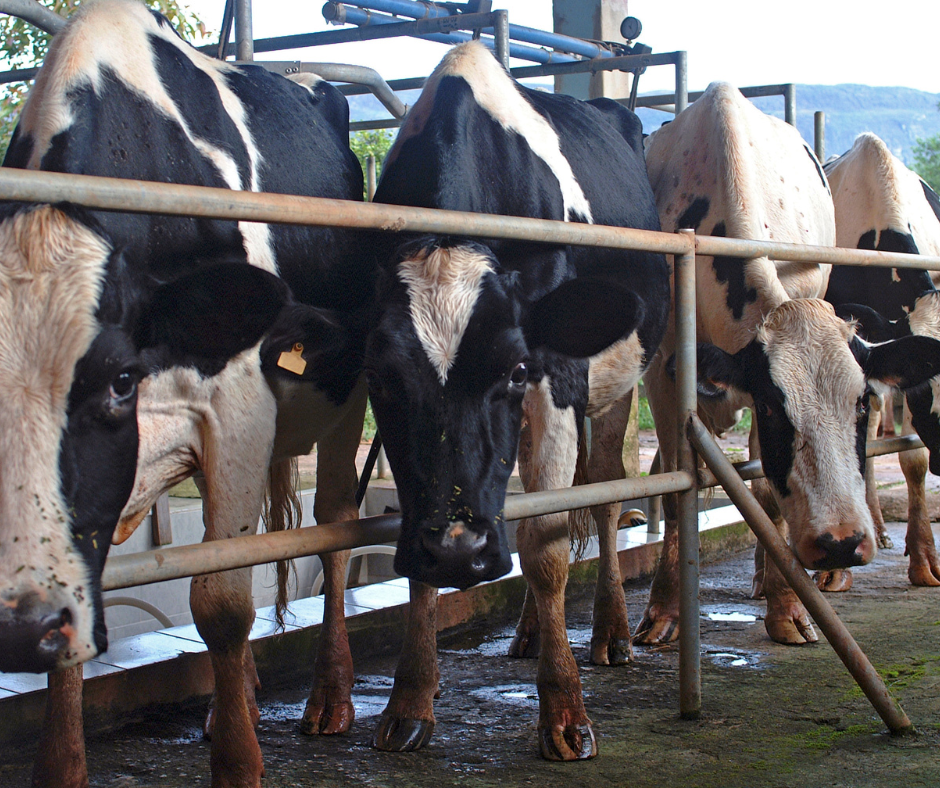Wisconsin built its identity as “America’s Dairyland” on family farms and world-class cheese production. But behind the barns and milking parlors, farmers and workers alike acknowledge a quiet reality. Without undocumented labor, the state’s dairy industry would struggle to survive.
Immigrants, many of them Latino and without legal status, make up the majority of workers who milk cows and clean barns across Wisconsin. A 2023 survey from the University of Wisconsin’s School for Workers estimated that immigrant labor accounts for about 70 percent of the state’s dairy workforce. Farmers say they cannot find enough U.S.-born workers willing to take on the grueling, round-the-clock work, and without immigrant employees, the milk supply would not be able to meet demand.
Latinos now make up about 13% percent of Wisconsin’s population, or nearly 450,000 residents, according to the U.S. Census Bureau. That share has more than doubled since 2000, reflecting both new migration and the growth of second-generation families. Many of those residents live in counties where dairy production drives the local economy, tying Latino communities directly to the fortunes of the state’s signature industry.
Unlike seasonal crop workers, most dairy employees are excluded from the federal H-2A visa program that provides temporary visas for agricultural labor. Because no visa covers year-round dairy work, thousands of immigrant employees in Wisconsin remain undocumented. Farmers depend on them to keep their herds healthy and production steady, but the workers themselves have no path to legal protection.
“The bottom line is, in Wisconsin, 70% of our farms … 70% of the people may be part of the federal government’s idea to move them elsewhere, out of our country,” Gov. Evers said in a press conference earlier this year. “Think about that. How in the hell will we continue to be the Dairy State with no one to milk the cows and do the other important work?”
That reliance has become more fraught in 2025 as the Trump administration intensifies immigration enforcement.
Immigration and Customs Enforcement has conducted more workplace raids and arrests across Wisconsin, unsettling both urban and rural communities. In Milwaukee, a series of arrests left families afraid to attend public events or move freely around the city. Employees fear that a traffic stop or routine encounter could end in deportation.
The raids have also reached the farms themselves. In Monroe, workers at W&W Dairy staged a rare strike this summer after the company introduced E-Verify, the federal system for checking employment eligibility. Dozens walked out, arguing that the change would force out longtime workers who had no legal status and leave them without severance after years of service.
For many immigrant employees, the risks stretch beyond the possibility of arrest. Without legal status, they cannot obtain driver’s licenses in Wisconsin, which means commuting to work itself can put them in jeopardy. A ProPublica investigation found that dairy workers regularly risked deportation simply by driving tractors on rural roads or transporting milk. The University of Wisconsin’s School for Workers has also documented cases of labor trafficking on dairy farms, where immigrants faced exploitative conditions and feared leaving for fear of retaliation.
At the same time, some farmers say they feel caught between political pressure to crack down on undocumented labor and the daily reality that their operations cannot run without it.
The contradictions in Wisconsin reflect a national dilemma. Worksite raids, meant to open jobs for citizens, often disrupt businesses and leave employers scrambling to replace experienced staff. The Wisconsin Examiner found that raids across the state left farms understaffed, hurting production without leading to a surge in local hiring. Farmers continue to lobby Congress to expand visa programs to cover dairy labor, but similar efforts have failed for years.
In the meantime, both employers and workers live with uncertainty. Wisconsin’s dairy industry produces more than a quarter of the nation’s cheese, an achievement that depends on the labor of immigrants who remain legally vulnerable. As deportations rise and policy debates stall, the state’s dairy economy stands on the shoulders of people who power its barns but lack the protections that would allow them to live and work openly.
